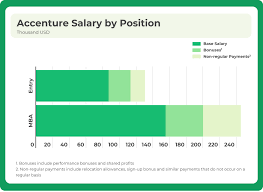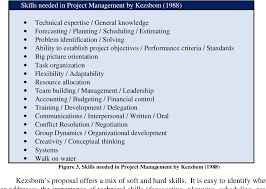
You can start your own consulting business if you are looking to work remotely as a consultant. You can market yourself to any business type. You have many options, but to be successful you will need to have broad expertise. Aaron and Val Giesler specialize in content market, while Jon Loomer is an expert in Facebook Ads. These individuals have built their reputations as trusted experts on their subject and are clients of high-profile businesses.
As a consultant you can work remotely
For those who are looking to work remotely, it may be an appealing option to become a consultant from home. There are disadvantages to working remotely. One is that consultants who work from home are less likely be promoted. Managers are more likely to promote consultants who spend their time in the office or at client sites. Consultants who work solely from home are less likely to be able to network and learn.
Many work from home consultants need a bachelor's degree in a field related to their area of expertise. For example, major corporations may require consultants to have a bachelor's degree in business management, accounting, or marketing. Some employers may even require a master's degree. A good computer and fast Internet connection are essential for work-from-home consultants.

Find your niche and become a consultant
Finding your consulting niche is important if you want to make a living as a consultant. While most career advisors recommend that you broaden your search, it is a good idea to narrow down your industry and skills to find a niche. Niche consultancy businesses are less competitive than general consulting firms, and therefore can charge higher fees.
When it comes to choosing a niche, you need to decide what your strengths are outside your normal 9-to-5 focus. You might be an expert in medical sales or have a passion about starting your own side business. Additionally, you will need to be self motivated and able establish boundaries.
Consultants have the potential to earn high salaries
Consulting is a great career path to high profits. Consultants can choose their clients and projects. This allows you to have full control of your income and schedule. It has low operating expenses, which makes it appealing to many. There are many consultants working in this field so it can be difficult for clients to come to you.
Your client's value will determine the cost of your consulting services. It can be difficult to determine what your fees should be. For a rate to be determined, it is necessary to understand the client's requirements and budget. The price you charge will depend on whether you work for a large or small company, but independent consultants generally earn more than corporate employees.

Getting paid as a consultant
Your rate is an important consideration when you are working as a consultant. A lump sum may be appropriate for projects that take less than a month. But if your project is more involved, you may want to consider charging hourly rates. This will enable you to get paid more quickly and cover your expenses. This will enable you to see exactly how many hours worked. This is crucial when creating invoices.
Consultants are paid to share their knowledge with clients and employers. Although this is a great way of starting your own business, it comes with additional tax responsibilities. As a self-employed individual, you'll have to pay taxes ranging from 10% to 37% of your net profit, and you'll also be responsible for paying estimated quarterly taxes and state and city taxes.
FAQ
Why would a company want to hire a consultant for their business?
Consultants offer expert advice to help improve your business' performance. They aren't there to sell your products.
A consultant helps companies make better decisions by providing sound analysis and recommendations for improvement.
Consultants often work closely alongside senior management teams to help understand what they need to succeed.
They offer leadership coaching and training to help employees reach their full potential.
They may be able to advise businesses on ways to cut costs, improve efficiency, and streamline processes.
What happens when the consultant is done?
After the consultant completes their work, he/she will submit a final summary of the results. This report contains all relevant information, such as project timelines and deliverables.
After that, you'll go through the report and decide if it meets your expectations. If it does not, you can ask for changes or terminate the contract.
How do I choose a consultant?
Three main factors should be considered:
-
Experience - How skilled is the consultant? Are you a beginner or an expert? Does her resume reflect the knowledge and skills she has?
-
Education – What did the person learn in school? Did he/she study any relevant courses after graduating from high school? Were there any evidences of this learning in his/her writing?
-
Personality - How do we feel about this person? Would you want this person to work for you?
-
These questions will help us determine if the consultant is right to meet our needs. If the answers are not clear, it may be worthwhile to interview the candidate in person to get more information about them.
Statistics
- According to statistics from the ONS, the UK has around 300,000 consultants, of which around 63,000 professionals work as management consultants. (consultancy.uk)
- My 10 years of experience and 6-step program have helped over 20 clients boost their sales by an average of 33% in 6 months. (consultingsuccess.com)
- 67% of consultants start their consulting businesses after quitting their jobs, while 33% start while they're still at their jobs. (consultingsuccess.com)
- WHY choose me: Why your ideal client should choose you (ex: 10 years of experience and 6-week program has helped over 20 clients boost their sales by an average of 33% in 6 months). (consultingsuccess.com)
- Over 62% of consultants were dissatisfied with their former jobs before starting their consulting business. (consultingsuccess.com)
External Links
How To
How To Find The Best Consultant?
First, ask yourself what kind of consultant you are looking for. You should know exactly what your expectations are before you start searching for someone. You should make a list of all the things you need from a consultant. These could include professional expertise, technical skills and project management abilities, communication skills, availability, and other things. After you have listed your requirements, it might be a good idea to ask colleagues and friends for their recommendations. Ask them what their experience with consultants was like and how they compare to yours. Research online if you don’t already have recommendations. There are many websites that allow users to leave feedback about their previous work experiences, such as LinkedIn and Facebook, Angie's List or Indeed. Look at the ratings and comments left by others and use this data as a starting point for finding potential candidates. Finally, once you've got a shortlist of potential candidates, make sure to contact them directly and arrange an interview. Talking through your requirements during the interview is a good idea. Ask them questions about how they can assist you in achieving those goals. It doesn’t matter who recommended them to you, just make sure they understand what you are trying to achieve and how they can help.